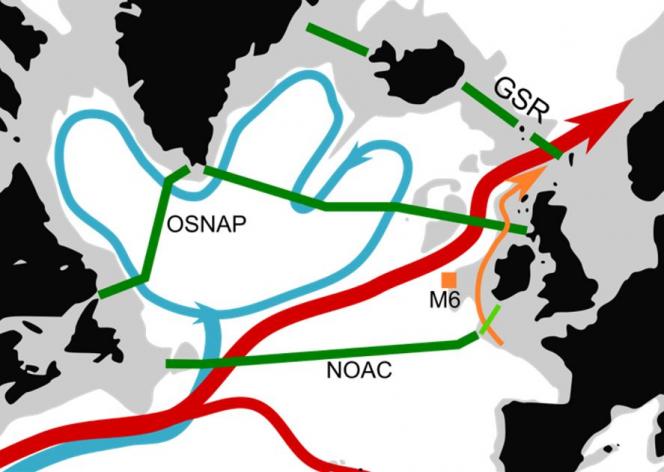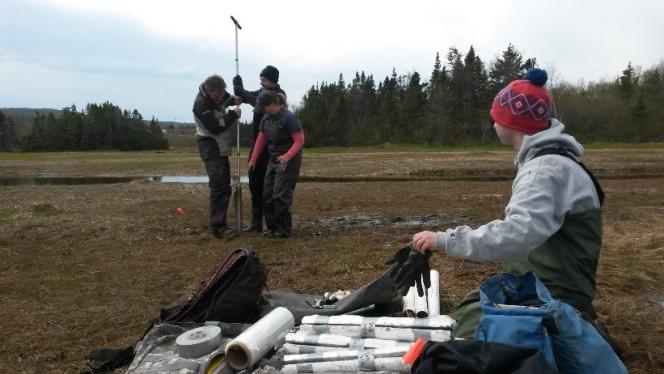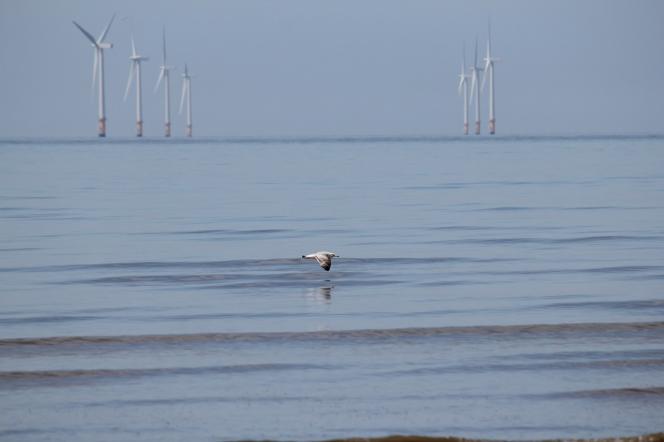Workpackages
- WP1: Atlantic Ocean and Irish Shelf variability
- WP2: Irish sea-level change and Atlantic context
- WP3: Decadal predictability for managing an uncertain future
WP1: Atlantic Ocean and Irish Shelf variability
The future climate of the North Atlantic may differ from that of every other ocean. While the surface of most oceans is predicted to warm at a similar rate to the global average, a relative cooling may occur in the Atlantic. Much of this deviation from the global mean is due to a predicted slowdown in the Atlantic Meridional Overturning Circulation (AMOC) linked to anthropogenically driven climate change. The AMOC is a system of currents that moves warm water northwards in the Gulf Stream and North Atlantic Current and returns it as cold, deep southward flow.
In recent years, the Atlantic has recorded its record coldest and record freshest values. By making new measurements and analysing observations and models, we investigate whether this behaviour is a canary in the coalmine for major AMOC change. Episodic AMOC collapse has been associated with large shifts in climate of up to 10ºC during the last glacial period. Instrumental data link the AMOC with multi-decadal phases of anomalous Atlantic sea surface temperatures that have widespread climate impacts, including climate variations in northwestern Europe.
Understanding the state of the Atlantic Ocean, its evolution and impacts on climate is a pre-eminent problem for societies in the 21st Century.

WP2: Irish sea-level change and Atlantic context
Quantifying regional variations in sea level rise (SLR) is one of the Grand Challenges set by the World Climate Research Programme. Research has shown that changes in the North Atlantic linked to declining Atlantic Meridional Overturning Circulation (AMOC) are potentially significant drivers of spatially variable SLR in this region.
The A4 project seeks to understand the expression of this variability on the Irish shelf, a key factor in translating globally averaged rates of mean SLR to the regional and local scales at which coastal policies and management are enacted. We will extract records of past relative sea-level (RSL) change from saltmarsh sediments along the Atlantic coasts of Ireland and North America. These ‘geological tide gauges’ will expand and extend our knowledge of the how RSL in the region has changed in response to ocean and climate variations over the past two millennia.
This information will provide a baseline against which the significance of recent (and projected) changes can be assessed.

WP3: Decadal predictability for managing an uncertain future
Decadal climate prediction aims to predicts the atmosphere and ocean several years in advance. Within the A4 project we bring this science to Ireland.
Our aim is to predict Irelands future on land as well as its surrounding seas. A unique opportunity therein is the capability of modern decadal prediction systems to have prediction skill in the North Atlantic. We will work on a better understanding of these mechanisms, and how they can be exploited to create prediction skill in and around Ireland.
Beside the physical understanding we will develop innovative statistical techniques to help us on this way. Finally, we want to make use of these predictions and apply them to practical use cases. Understanding the uncertainties of predictions and communicating them in the right way for communities and businesses is a tough challenge, which we will approach with new ideas.
